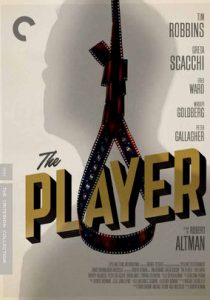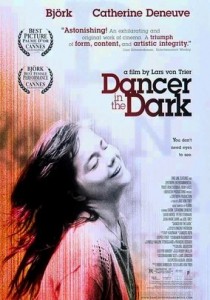Cabaret-1972
Director Bob Fosse
Starring Liza Minnelli, Michael York
Top 250 Films #52
Scott’s Review #975
Reviewed December 31, 2019
Grade: A
If not for the mighty and powerful The Godfather (1972) blocking its path (but who’s complaining?), Cabaret (1972), with eight Academy Award nominations, surely would have won Best Picture in its year of release.
The film thus has the dubious honor of receiving the most nominations of all time without whisking away the ultimate trophy, but no matter; the Oscars are not everything.
The production, acting, and story are inventive and envelope-pushing, both serious and fun, and proof that 1972 was one of cinema’s greatest years.
The story centers on a circle of friends enjoying the decadence and joviality of the decade, though they face their own struggles. Energetic Kit Kat Klub performer, Sally Bowles (Minnelli) takes a shine to British scribe, Brian (Michael York) when he moves into her boarding house.
Despite having completely different personalities, they become deeply bonded and best friends. Rich playboy baron, Maximilian (Helmut Griem), woos the pair with money and travel and beds each of them separately, eventually dumping them both.
In a supporting yet important subplot, Fritz Wendel (Fritz Wepper) is a German Jew passing himself off as a Protestant. He falls madly in love with Natalia (Marisa Berenson), a gorgeous and authentic German Jewish heiress.
Their love story is comic relief, but it also has a dangerous aspect, given the foreboding political events. The safety of the cabaret serves as a haven while the outlandish Master of Ceremonies (Joel Grey) appears throughout the film performing risque numbers.
Adapted from the popular Broadway stage show, the musical drama is set in 1930s Berlin and begins in 1931. Historians will realize that the decade of the 1930s in Germany was frightening, giving rise to the deadly and hated Nazi Party.
While the film never goes full-fledged dark, there are snippets of beatings and ridicule at the hands of the Nazis, powerful stuff and tough to take, especially given the Jewish religion of some of the principals.
Liza Minnelli has never had a better role than the one she plays as Sally. The character is vivacious, zesty, and emotional, and Minnelli dives in headfirst, winning viewers’ hearts. Beneath her bubbly exterior, Sally is wounded, yearning for love and peace of mind.
She pretends to be close to her wealthy father, but it is far from the truth. The most powerful scene is when a pregnant Sally comes to terms with the heart-wrenching decision to abort the baby.
For both the time-period setting, the 1930s, and the year the film was made, 1972, the sexuality dynamic is powerful and worth a nod. Brian, openly bisexual and at a different time certainly gay, is a great character.
He beds Sally more out of friendship than anything else while delving into admiration (or lusting) for the suave and dashing Maximilian. The fact that his sexuality is embraced and explored is to be celebrated and respected. It’s also a damned interesting part of the film.
Of course, Cabaret being a musical, the performance numbers are superlative. With gorgeous choreography by the director, Bob Fosse (and who would expect anything less from the seasoned artist), the sets and costumes are stylish.
The conclusion, featuring “Cabaret”, is done grandly as Sally performs on stage with precision and bombast. “Willkommen” and “Maybe This Time” are also dynamic favorites.
Cabaret (1972) is a spirited, intelligent experience, never glossing over the historical period, nor assuming viewers are too dumb to have a handle on those events.
The film plays best for smart audiences who appreciate artistic merit and enjoy the robust musical numbers.
Carefully, the film is designednever to shy away from the crucial Nazi power that was creeping up and leading to a generation of despair and repercussions.
Oscar Nominations: 8 wins-Best Picture, Best Director-Bob Fosse (won), Best Actress-Liza Minnelli (won), Best Supporting Actor-Joel Grey (won), Best Screenplay Based on Material from Another Medium, Best Scoring: Adaptation and Original Song Score (won), Best Sound (won), Best Art Direction (won), Best Cinematography (won), Best Film Editing (won)


